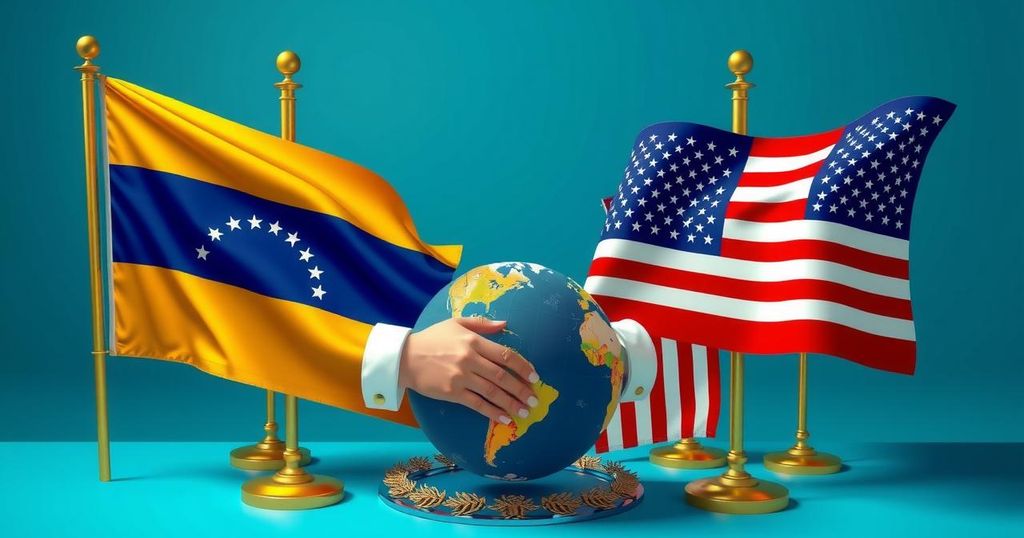Venezuela and U.S. Reach Agreement to Resume Deportation Flights

Venezuela struck a new agreement with the U.S. to restart repatriation flights for migrants illegally in the U.S., a decision announced by President Maduro. This agreement occurs amidst tense relations following the revocation of Chevron’s export license. The flights are set to commence soon, aligning with Trump’s deportation agenda, while legal challenges remain concerning the treatment of Venezuelan migrants labeled as gang members.
Venezuela has established a new agreement to recommence repatriation flights for migrants unlawfully present in the United States. This was officially announced by high-ranking Venezuelan officials, including President Nicolás Maduro, during a televised address. Such developments arise amidst ongoing tensions between the two nations, particularly following the revocation of Chevron’s oil export license by the U.S. Treasury Department, which had previously led to the suspension of deportation flights in March 2023.
This agreement aligns with the objectives of former President Donald Trump, who is aiming to fulfill his 2024 campaign promise of executing extensive deportations of undocumented immigrants from the U.S. During the deal’s announcement, Jorge Rodríguez, President of Venezuela’s National Assembly, emphasized the commitment to safeguard the human rights of repatriated individuals. He stated that the resumption of flights intends to assure the safe return of Venezuelan citizens.
In his televised remarks, Maduro noted that the arrangement would permit Venezuela to continue its efforts to “rescue and release” migrants detained in U.S. facilities. He criticized El Salvador’s President Nayib Bukele for his role regarding the transfer of alleged gang members to his country. Venezuelan authorities have consistently denied that those deported are affiliated with the Tren de Aragua gang, which was recently designated a terrorist organization.
Furthermore, the Trump administration has been accused of breaching U.S. District Judge James Boasberg’s ruling, which prohibited swift deportations of Venezuelans identified as gang members. The White House has countered this by asserting that the deportation flights occurred outside U.S. jurisdiction upon the issuance of the ruling, thereby remaining compliant.
Scheduled to begin flying on Sunday, the repatriation flights represent a significant shift in U.S.-Venezuela relations. Judge Boasberg has ordered the Trump administration to clarify how it adhered to his ruling by March 25, underscoring the continuing legal implications of these deportation policies.
Venezuelan citizens, such as Mirelys Casique, whose son was also repatriated to El Salvador, have expressed concern over the identification of various individuals as criminals, arguing for recognition of their humanity and rights as immigrants. Amidst these developments, further discourse is expected as the situation unfolds.
In summary, the agreement between Venezuela and the U.S. to resume repatriation flights signifies an important development amid strained relations between the two countries. The initiative reflects both nations’ policy priorities, particularly Trump’s ongoing commitment to mass deportations. As repatriation flights prepare to begin, the legal and humanitarian implications continue to unfold, prompting discussions surrounding immigration rights and international responses to deportation practices.
Original Source: www.newsweek.com







